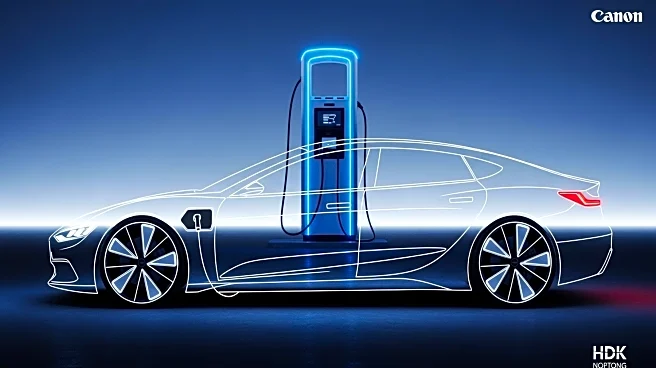What is the story about?
What's Happening?
Audi has unveiled its Concept C, a new design philosophy for its upcoming TT replacement, which is set to become a production model by 2027. The Concept C features a sleek design and a more upscale interior, emphasizing high-quality materials. Notably, Audi has confirmed that the new model will not include an internal combustion engine (ICE), marking a significant shift from traditional gas-powered vehicles. This decision aligns with Audi's broader strategy to focus on electric vehicles (EVs) and reduce reliance on fossil fuels. The announcement comes amid speculation about a potential gas-powered variant, which Audi has decisively ruled out.
Why It's Important?
Audi's decision to eliminate ICE options for the TT replacement underscores the automotive industry's shift towards electrification. This move is part of a larger trend among car manufacturers to meet increasing regulatory demands for lower emissions and to cater to growing consumer interest in sustainable transportation. By committing to an all-electric model, Audi positions itself as a leader in the transition to EVs, potentially influencing competitors and shaping market expectations. This could impact the U.S. automotive market by accelerating the adoption of EVs and encouraging infrastructure development to support electric mobility.
What's Next?
As Audi prepares for the production of the Concept C, stakeholders in the automotive industry will likely monitor its development closely. The success of this model could prompt other manufacturers to accelerate their own electrification plans. Additionally, Audi's decision may influence policy discussions around EV incentives and infrastructure investments in the U.S. The company will need to address consumer concerns about range, charging availability, and performance to ensure the model's success in a competitive market.
Beyond the Headlines
Audi's shift to electric vehicles raises questions about the future of traditional sports cars and the cultural significance of engine sound and performance. The transition may redefine consumer expectations and preferences, potentially leading to new design and engineering innovations. Furthermore, this move could have long-term implications for employment in the automotive sector, as skills related to ICE production become less relevant.

















